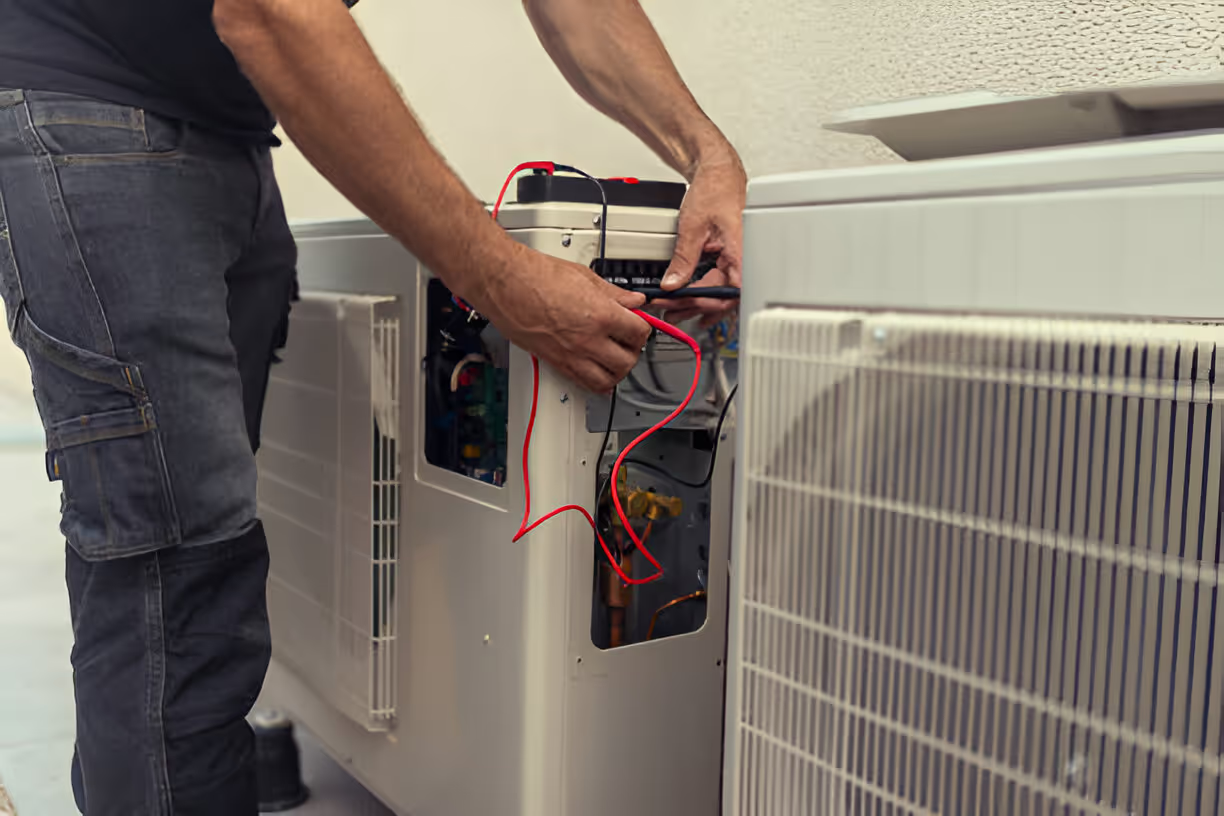Heat Pump Replacement in Glen Cove, NY
Replacing an aging or failing heat pump is a major home investment—especially in Glen Cove where cold winters, humid summers, and coastal salt air all affect system performance and lifespan.

Why replace a heat pump in Glen Cove now?
- Older units lose efficiency and cost more to run, a real concern with Long Island energy costs.
- Coastal homes face accelerated corrosion and wear from salt air; outdoor coils and fasteners can degrade faster.
- Frequent repairs, loud operation, uneven heating or cooling, or failure to keep up after weatherization or additions are signs replacement is more cost-effective than repair.
- New high-efficiency models provide better year-round comfort, quieter operation, and lower utility bills—critical for humid summer months and cold snaps.
Common heat pump replacement issues in Glen Cove
- Reduced capacity and higher energy bills after 8–15 years of use
- Refrigerant phase-out issues (older systems that need R-22)
- Corrosion of outdoor units from salt air or proximity to the coastline
- Repeated compressor or reversing valve failures
- Mismatched or undersized systems after home renovations or insulation upgrades
- Inefficient or incompatible controls and thermostats
Initial evaluation and diagnostics
A thorough replacement begins with a detailed on-site evaluation of the existing system and the home:
- Inspect indoor and outdoor units, ductwork or refrigerant lines, electrical panel capacity, and thermostat wiring.
- Assess the condition of mounting pads, fasteners, line-sets, and condensate management—critical for coastal properties.
- Review past service records and recent repair history to determine whether replacement or repair makes more financial sense.
- Discuss your comfort goals, budget, and any home changes (finished basements, additions) that affect load.
Proper sizing and energy-efficiency recommendations
Correct sizing is essential for comfort and efficiency:
- We use a Manual J load calculation (or equivalent) to determine heating and cooling loads based on Glen Cove home orientation, insulation levels, windows, occupancy, and local climate factors.
- Oversized systems short-cycle and reduce humidity control; undersized systems struggle during peak weather.
- Choose high-efficiency heat pumps (higher HSPF and SEER ratings) to reduce winter and summer energy use. For coastal installations, look for models with corrosion-resistant coatings and robust warranties on outdoor coils.
- Consider variable-speed compressors and advanced inverter-driven models for better comfort, lower operating noise, and improved efficiency in the variable coastal climate.
High-efficiency models and brands to consider
- Single-package and split-system heat pumps from reputable manufacturers (examples commonly available): Daikin, Rheem, Bosch, Goodman, Amana.
- Ductless mini-splits are a strong option for additions, converted attics, or homes without ducts; they offer zoned comfort and high efficiency.
- Look for ENERGY STAR rated models and features like variable-speed compressors, smart thermostat compatibility, and multi-stage operation for improved dehumidification in Glen Cove summers.
Removal, disposal, and environmental compliance
- Safe recovery of refrigerant is mandatory; certified technicians recover and handle refrigerants per federal and state rules.
- Proper disposal and recycling of old equipment and refrigerant-containing components follow NYS and EPA guidelines.
- For coastal installations, removal often includes inspection and repair of rooftop or pad mounts to prevent accelerated corrosion on the new unit.
Installation process and expected timeline
- Typical residential heat pump replacement timeline: 1 to 3 days for a straightforward like-for-like swap. Complex jobs (duct upgrades, electrical panel work, or multi-zone systems) can take longer and may require permits.
- Typical steps:
- Pre-install inspection and final equipment selection
- Obtain required permits and schedule inspections (permit timelines can add days)
- Remove old equipment and prepare mounting surface or pad
- Install new outdoor and indoor units, run or replace line-sets and wiring, and connect controls
- Evacuate lines, charge refrigerant per manufacturer specs, and power up
- System startup, commissioning, and airflow balancing
- Post-install walkthrough and documentation (manuals, warranty registration, maintenance recommendations)
- In Glen Cove, plan for potential permit review times through Nassau County and any specialized coastal installation requirements.
Warranty, post-installation testing, and documentation
- Manufacturer warranties vary by brand and model—verify compressor and parts coverage and any conditions (professional installation, registered warranty).
- Post-install testing includes refrigerant charge verification, airflow and static pressure checks, electrical load confirmation, and thermostat calibration.
- Proper documentation should include equipment labels, system pressures, final load and efficiency notes, and warranty registration instructions.
Rebates, incentives, and financing assistance in New York
- New York homeowners may qualify for a mix of federal, state, and utility incentives; local programs often target heat pump adoption and energy efficiency upgrades.
- Rebates commonly available in the region include utility-level incentives and state-supported programs—some incentives are expressed per ton of capacity (for example, rebates eligible up to $1,000 per ton), though amounts and eligibility vary.
- Financing or low-interest options are frequently offered to spread replacement costs over time; these programs can help align upfront investment with long-term energy savings.
- Always confirm current eligibility criteria and application steps for federal tax credits, state rebates, and local utility programs before finalizing equipment selection.
Long-term benefits and maintenance advice
- Replacing an older heat pump with a modern high-efficiency model improves year-round comfort, reduces energy bills, and enhances humidity control—particularly valuable in Glen Cove’s humid summers and variable winters.
- Regular seasonal maintenance (annual tune-ups, filter changes, coil cleaning, and refrigerant checks) preserves efficiency and extends equipment life, especially important for coastal exposure.
- Consider a maintenance plan that includes prioritized service during peak seasons to maintain reliability.
Replacing a heat pump is a technical process that pays off through improved comfort, lower energy bills, and reduced repair needs—especially for Glen Cove homes facing coastal corrosion and variable weather. Proper evaluation, correct sizing, quality equipment, compliant removal, careful installation, and attention to available incentives make the difference between a short-term fix and a long-term solution.
Customer Testimonials
Hear directly from homeowners who trust Bobby O’s HVAC Inc. for fast response times, honest service, and lasting comfort.











